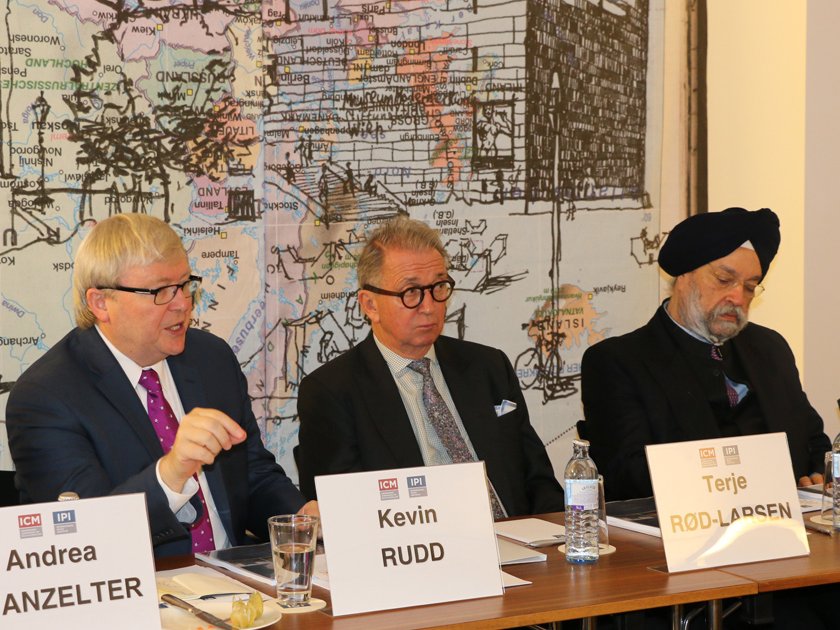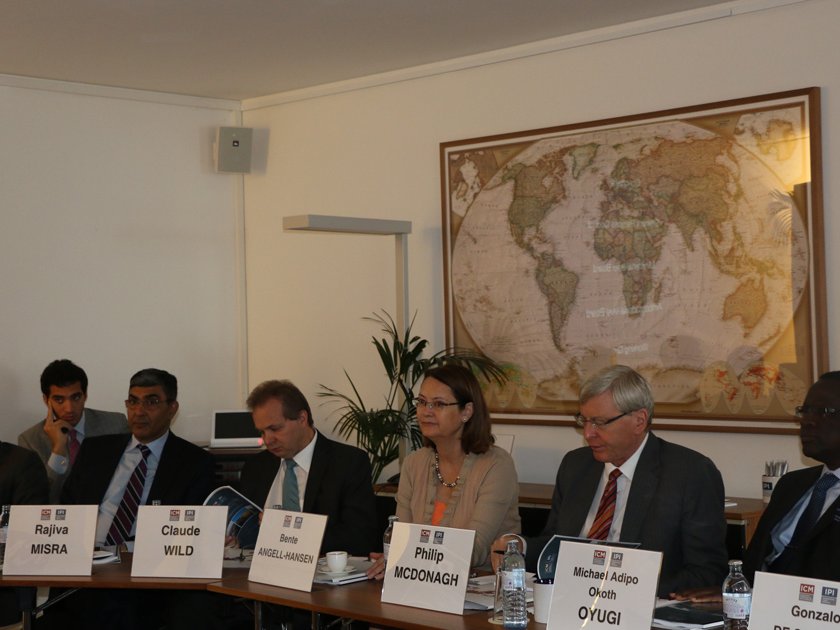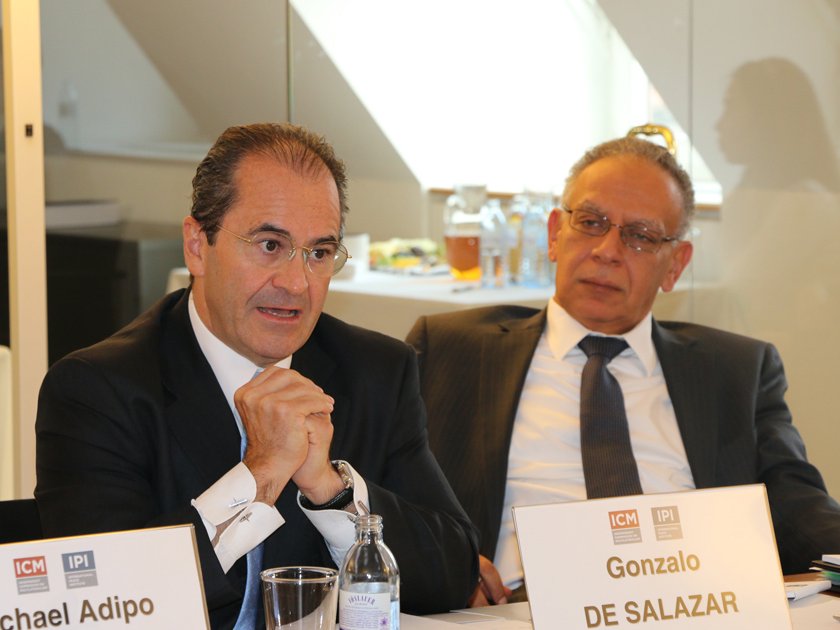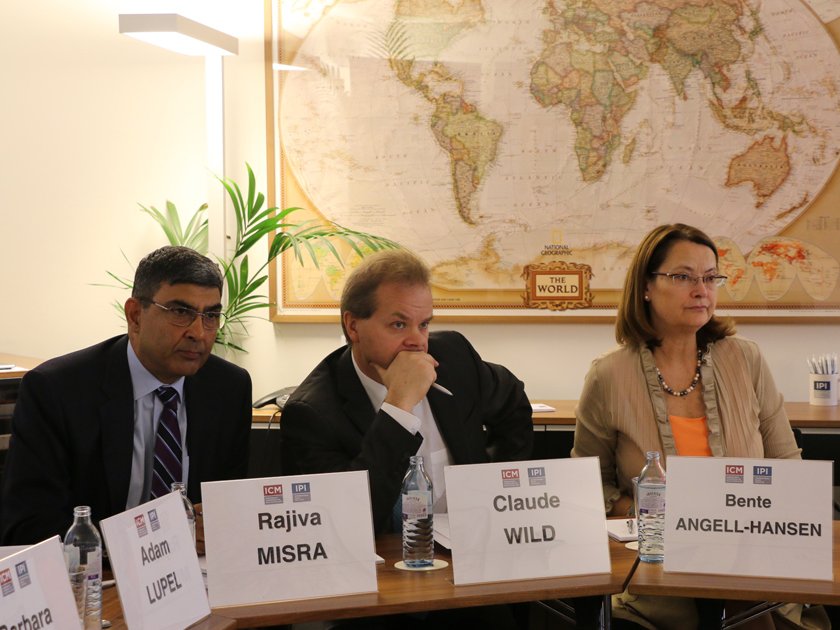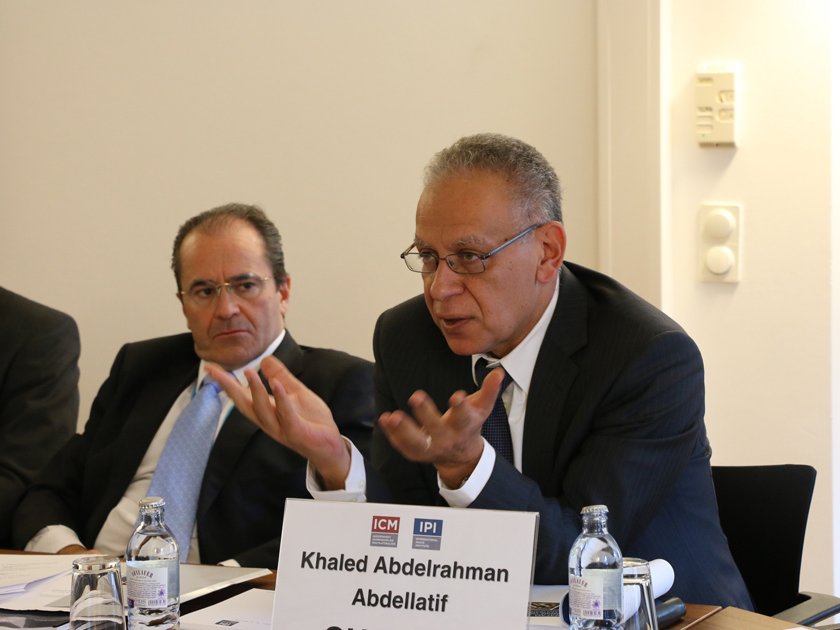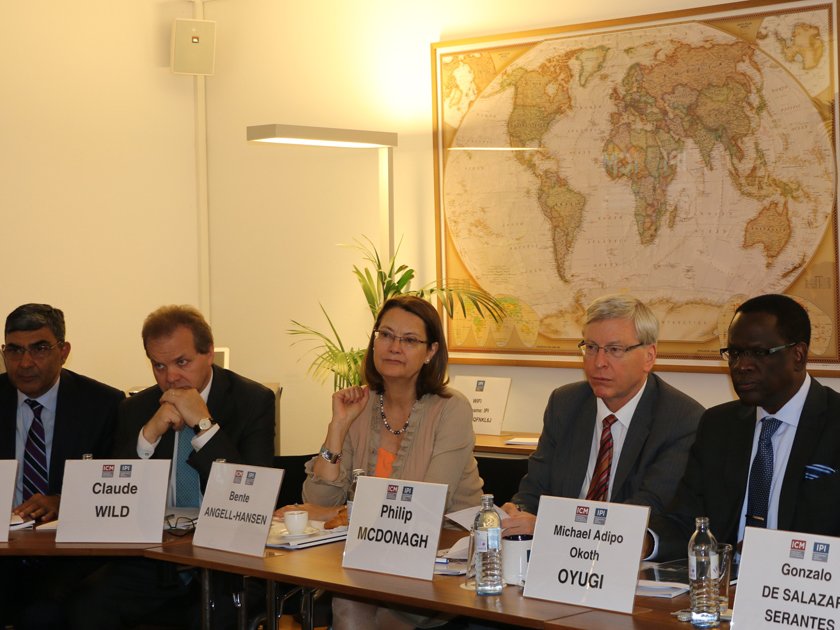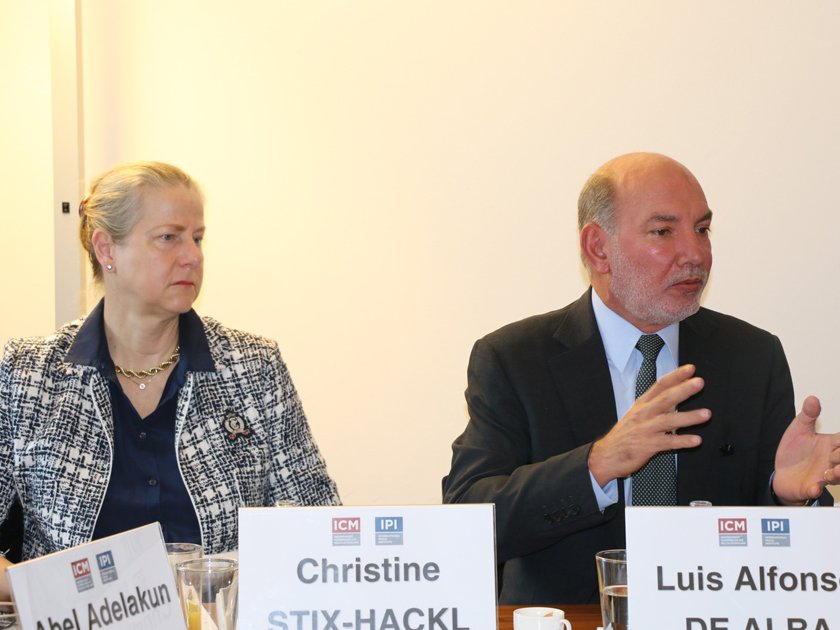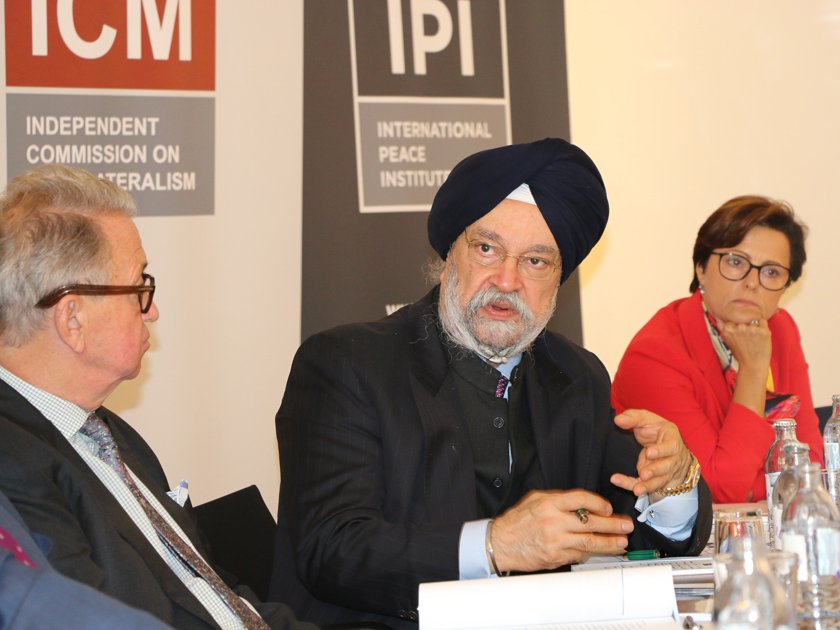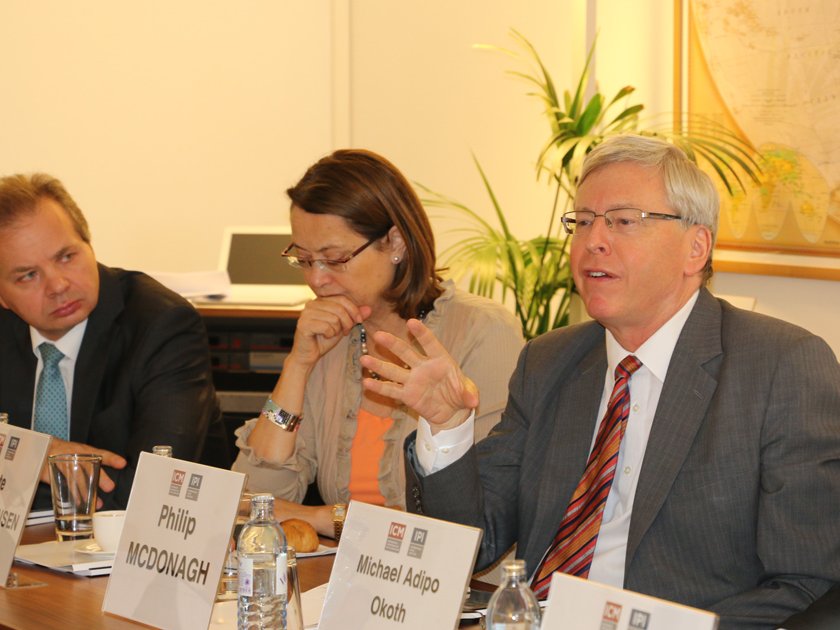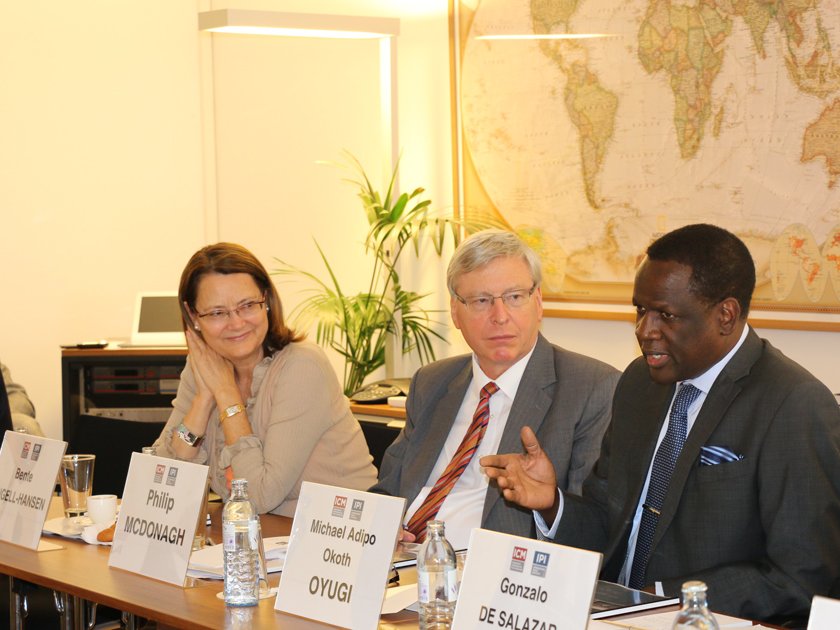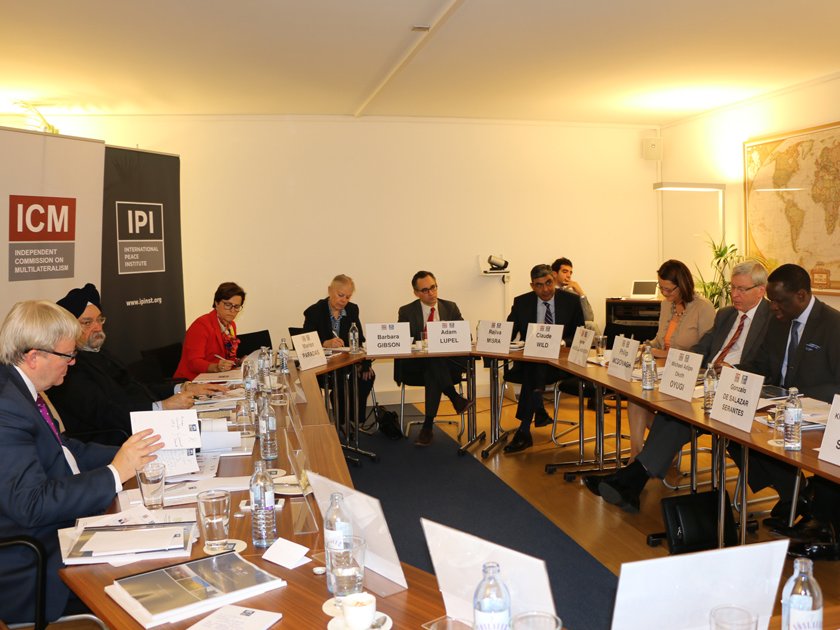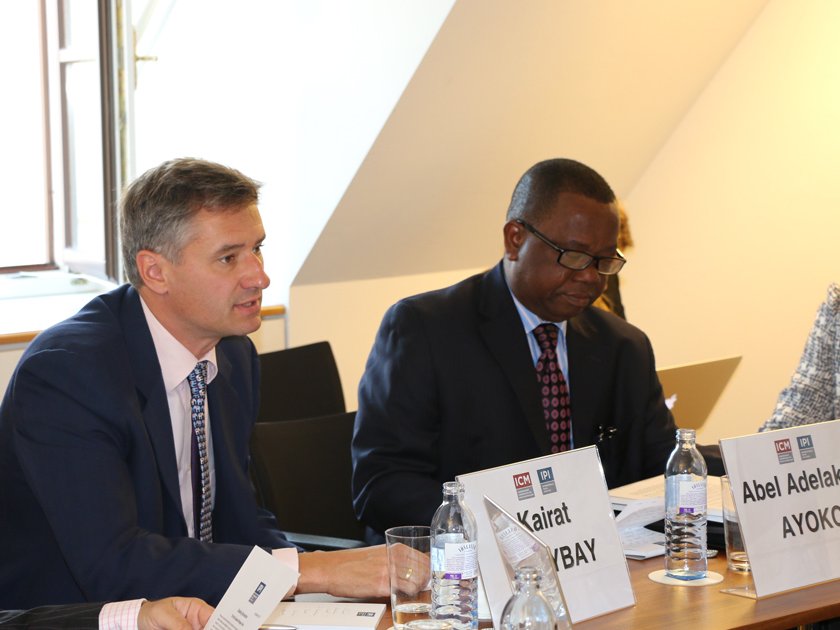The meeting of the Independent Commission on Multilateralism’s Vienna-based Ambassadorial Board took place at the International Peace Institute in Vienna on September 10. The meeting was chaired by the Right Honorable Kevin Rudd, Chair of the ICM.
During his remarks, Mr. Rudd welcomed the members of the Ambassadorial Board, indicating this would be the first of two meetings over the course of the next six months. The purpose of the meeting was to present to the Ambassadorial Board the ICM’s outputs thus far and seek strategic guidance on the process going forward.
The timeliness of the ICM was lauded by participants, given the seventieth anniversary of the United Nations, which they indicated, was an important time for reflection and reassessment. The list of issue areas—while ambitious—was commended for being comprehensive. Having said that, the discussion indicated the need for the ICM to address particular “functional” issues within the multilateral system from the methodology of international organization to issues relating to finance and budgets.
One particular query that generated a debate related to whether there could be multiple or competitive “multilateral systems” working at different speeds and levels. Mr. Rudd indicated that, while there remains a proliferation of new international organizations and an inherent “mini‐multilateralism” taking place at the regional level, the UN remains best suited to serve as an anchor given its unique convening power and legitimacy. He stressed the need to look at the relationship between different groups in the system, particularly regional organizations and their untapped potential. The analysis of the ICM therefore will strive to pinpoint ways in which the interlinkages can be improved and how to build greater consensus among different actors.
Fragmentation—at both the intra‐organizational and inter-organizational levels—was another theme discussed at length. The inability to produce a sound “big picture” analysis was attributed to the fragmented nature of the system. For the UN in particular, the problem of silos was cited as a key challenge. Getting traction in a consensus‐driven organization remains crucial. This often coincides with who “holds the pen.” Narrative is very important: there remains a need for a non‐technical narrative that is more accessible. Climate change was cited as an issue that can help change the narrative. Mr. Rudd responded to this by indicating that the ICM report would strive to make serious recommendations on cohesion, at the field and headquarters levels and, most importantly, between the two.
The issue of finance was highlighted as a gap in the sixteen issue areas of the ICM. Given the debate around the Finance for Development Conference, it is a topic that cannot be overlooked. Mr. Rudd reiterated that the issue of finance would indeed be reflected in the ICM’s report holistically across the sixteen issue areas, particularly regarding alternative means of mobilizing resources.
Mr. Rudd emphasized that the Board exists first and foremost to give member states a chance to offer strategic guidance and share their perspective on the ICM process as it unfolds, rather than simply seeking feedback upon completion of the report. Indeed, through consistent consultation and feedback, the ICM aims to be as transparent and inclusive as possible.
List of attendees:
- H.E. Mr. Kevin Rudd, Chair of the ICM, and former Prime Minister of Australia
- H.E. Mr. Hardeep Singh Puri, Secretary-General of the ICM
- H.E. Terje Rød-Larsen, President, International Peace Institute
- H.E. Ms. Maria Zeneida Angara Collinson, Permanent Representative, Permanent Mission of the Philippines to the United Nations
- H.E. Ms. Bente Angell-Hansen, Permanent Representative, Permanent Mission of Norway to the United Nations
- H.E. Mr. Abel Adelakun Ayoko, Permanent Representative, Permanent Mission of Nigeria to the United Nations
- H.E. Mr. Luis Alfonso De Alba, Permanent Representative, Permanent Mission of Mexico to the United Nations
- H.E. Ms. Barbara Gibson, Senior Advisor, Independent Commission on Multilateralism
- Dr. Walter Kemp, Senior Director for Europe and Central Asia, International Peace Institute
- Dr. Adam Lupel, Director of Research and Publications, International Peace Institute
- H.E. Mr. Philip McDonagh, Permanent Representative, Permanent Mission of Ireland to OSCE
- H.E. Mr. Rajiva Misra, Permanent Representative, Permanent Mission of India to the United Nations
- H.E. Mr. Michael Adipo Okoth Oyugi, Permanent Representative, Permanent Mission of Kenya to the United Nations
- H.E. Ms. Marion Paradas, Permanent Representative, Permanent Mission of France to the United Nations
- Ms. Andrea Pfanzelter, Senior Director, International Peace Institute
- H.E. Mr. Terje Rød-Larsen, President, International Peace Institute
- H.E. Mr. Kairat Sarybay, Permanent Representative, Permanent Mission of Kazakhstan to the United Nations
- Mr. Jonathan Sauvé, Permanent Mission of Canada to the United Nations
- H.E. Mr. Gonzalo de Salazar Serantes, Permanent Representative, Permanent Mission of Spain to the United Nations
- H.E. Mr. Khaled Abdelrahman Abdellatif Shamaa, Permanent Representative, Permanent Mission of Egypt to the United Nations
- H.E. Ms. Christine Stix-Hackl, Permanent Representative, Permanent Mission of Austria to the United Nations
- H.E. Mr. Claude Wild, Permanent Representative, Permanent Mission Switzerland to the United Nations

